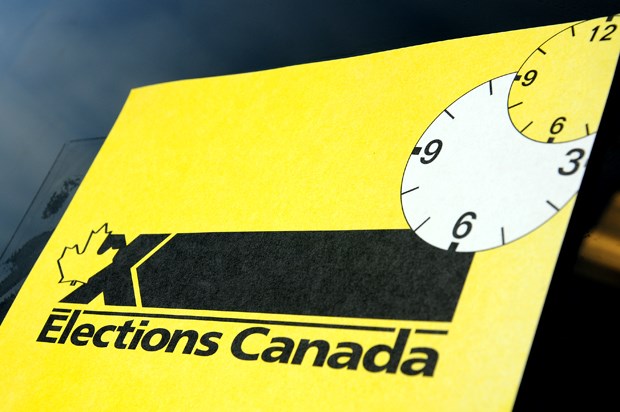As politicians of all party stripes know, “It’s the economy, stupid!”
On Thursday night, political leaders of three national parties took part in a debate on economic issues aimed at telling voters where they stand on jobs, housing, taxes and infrastructure spending.
Party leaders sparred on whether the Canadian economy is doing alright compared to the rest of the world, or failing to help most families get ahead. On Friday, local candidates from all four major parties shared their views on why voters should trust them with these bread-and-butter issues.
Conservative candidate Andrew Saxton, running for re-election in North Vancouver, stressed his party’s prudent, measured approach to shepherding the economy.
As a trading nation, Canada’s economy is subject to volatility in global markets, but Conservatives have proven they can lead through tough economic times, said Saxton. “We are a model the rest of the world is looking to. It didn’t happen by accident.”
Saxton said the Conservatives cut accumulated debt during their first two years in office which allowed the federal government to invest in successive infrastructure programs.
“North Vancouver has done very well under the stimulus program,” he said, pointing to projects like the recently announced upgrades to highway interchanges.
Saxton said the main difference between the Conservatives’ and Liberals’ infrastructure plans is that the Conservatives won’t raise taxes to pay for them.
He said tax cuts and credits under the Conservatives have resulted in more disposal income for most Canadians. “We believe that’s good for the economy,” he said.
“The other parties have long shopping lists of what they’re going to be spending on,” he said, criticizing the Liberal plan to run three deficits in order to fund new infrastructure spending. “They’re heading down a very slippery slope.”
But North Vancouver Liberal candidate Jonathan Wilkinson said now is the right time to stimulate the economy with more investments in infrastructure.
Low interest rates mean, “if you are ever going to do large scale infrastructure it is now,” said Wilkinson. “It’s an investment. We need to get this country going again.”
Wilkinson criticized Conservative infrastructure spending as “very minimal.”
“It’s declined significantly over the past several years,” he said. “The Conservative approach has basically been to do nothing.”
He said the Liberals are just being truthful when they say they will run deficits to pay for that. But he added it was a Liberal government under Paul Martin that first took aim at the country’s debt.
Wilkinson said the Liberals plan to raise taxes for the highest income earners – those who make more than $200,000.
His party also wants to diversify the economy. “Our natural resource base is not sufficient,” he said.
An NDP government also plans to raise taxes – increasing corporate tax rates in order to fund more spending on social programs. But they plan to stick to a balanced budget, said West Vancouver Sunshine Coast Sea to Sky Country NDP candidate Larry Koopman.
Koopman said he believes that’s a prudent plan, which he contrasted with the Liberal plan to run deficits. Koopman said Canada is not in a deep financial crisis anymore, so measures like those the Liberals are proposing are no longer necessary.
“We do have a good sound fiscal program,” he said of the party’s platform. “I’m quite a fiscal conservative.”
Koopman said while some critics have voiced concern about the NDP’s lack of track record as a governing federal party, New Democrats do have “a very good provincial record of prudent financial management.”
He disagreed with critics who suggested the NDP will have to cut programs to achieve a balanced budget. “It’s a matter of priorities,” he said.
Koopman said the NDP plans to end “fossil fuel subsidies” and get rid of income-splitting and the doubling of the tax-free savings account brought in by the Conservatives. The party would also go after those who avoid paying taxes.
Elizabeth May, the Green Party leader, was shut out of Thursday’s leaders’ debate. But that doesn’t mean the Greens don’t have an economic platform.
Claire Martin, Green Party candidate for North Vancouver, said her party’s No. 1 priority is “creating sustainable jobs. Not part-time. Not short-lived.”
Martin said it’s a myth that the Green Party doesn’t care about the economy. “The Green Party does not want to kill the economy. We don’t want people to lose jobs.”
The Greens also plan to bring in an infrastructure program, paying for that by using one per cent of the GST towards it.
They also plan to eliminate subsidies to oil and gas companies.
The party also plans to raise revenue by regulating and taxing marijuana like tobacco, the way it has been done in several U.S. states. Martin said the Greens estimate that would bring in $2 billion the first year, eventually increasing to $5 billion. “There’s really a ton of money there,” she said.



